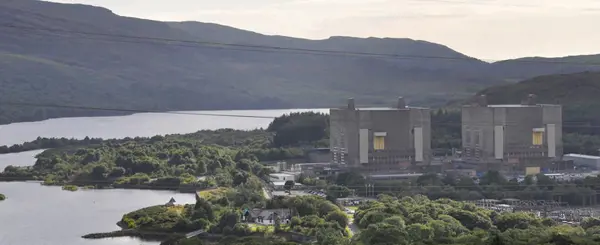Whilst the Government continues to focus on endless Brexit debate, the UK has been dealt a blow with the announcement by Horizon Nuclear power, a subsidiary of Japanese giant Hitachi, of its decision to suspend work on the Wylfa Newydd nuclear plant in Anglesey. The Company has blamed the decision on rising construction costs.
The original Wylfa plant closed in 2015 after more than 40 years of service and it was anticipated that about 9,000 workers would have been involved in the construction of the £20bn replacement which was due to be operational by the mid- 2020s. Hitachi had been in talks with the UK government since June 2018 to agree how Wylfa Newydd would be paid for, and critically how much public money could be invested. With Government resources remaining tight these talks appear to have fallen by the wayside. As a result, with no commitment or upfront cash being provided by the UK, Hitachi has judged the project just too risky, despite the decision to pull out costing them around £4.2bn.
Announcing the suspension, Duncan Hawthorne chief executive of Horizon, said Wylfa Newydd remained "the best site for nuclear development in the UK" and that the company would "keep the option to resume development in future". Despite this, it is a tough blow for the UK nuclear industry, following so close behind the recent decision by Toshiba to wind up its UK nuclear business, NuGen which was to deliver a new nuclear facility at Moorside in Cumbria. Korea Electric Power Corporation (Kepco) had been a preferred bidder to take over the Moorside project, but those talks fell through after more than a year of negotiations.
The Wylfa decision means that a second Hitachi nuclear facility planned for Oldbury, Gloucestershire, will also be shelved. This leaves the Hinkley Point power station in Somerset as the only new UK reactor still being built, raising the very real prospect of a UK energy crisis.
The need for a secure and reliable supply of electricity in the UK is undoubtedly a matter of critical importance. The Government made clear in National Policy Statements (NPS) EN-1 (Energy, July 2011) and EN-6 (Nuclear Power Generation, July 2011) that it was keen to ensure that energy from low carbon sources plays an increasing role, and that new nuclear power should contribute as much as possible to the UK’s need for new electricity generating capacity. However the Hitachi decision continues to call into question the ongoing reliance on foreign companies for the UK’s essential energy needs. Shadow business secretary Rebecca Long Bailey said the government's nuclear strategy was now "lying in tatters" and had "escalated into a full-blown crisis". Tom Greatrex, chief executive of the Nuclear Industry Association, said the news was disappointing for the nuclear industry as a whole, noting that “the urgent need for further new nuclear capacity in the UK should not be underestimated, with all but one of the UK's nuclear power plants due to come offline by 2030."
In a press release back in 2016 the Department for Business, Energy & Industrial Strategy announced that ministers would impose a new legal framework for future foreign investment in Britain’s critical infrastructure, which would include nuclear energy and apply after Hinkley. It noted that the new legal framework for future foreign investment in British critical infrastructure would mean that the British Government would take a special share in all future nuclear new build projects. There were to be reforms to the Government’s approach to the ownership and control of critical infrastructure to ensure that the full implications of foreign ownership were scrutinised for the purposes of national security. These changes were intended to bring Britain’s policy framework for the ownership and control of critical infrastructure into line with other major economies, with the intention that, “while the UK will remain one of the most open economies in the world, the public can be confident that foreign direct investment works in the country’s best interests.” With two major overseas investors pulling out of the UK energy market in the last few months alone it looks like the UK will have little alternative but to look for funding sources closer to home if the desire for clean nuclear power is to be realised. If not, then our continued reliance on other nations for our security of energy supplies will leave the UK in an even more fragile position in the future.



